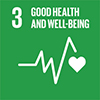Five billion people across the world cannot access the surgery they need, with a shortage of surgeons presenting a huge barrier to increasing access to safe and timely surgery in underserved communities.
In a significant intervention aimed at addressing this barrier, a new $5m Global Surgery Training Challenge is setting out to create low-cost surgical training prototypes that will help surgical practitioners to learn new skills to improve the health of their communities.
Reflecting the university's extensive experience in surgical training, education and research partnerships in low-resource environments, and our world-leading capacity in simulation education and research, a multi-disciplinary team from RCSI has been selected by the challenge funder, Intuitive Foundation, to lead a mentorship programme for the teams participating in the challenge. MIT Solve, Nesta Challenges and the Appropedia Foundation are also partners in this challenge.
Ten teams have been successful in obtaining the initial round of Discovery Award grants. They are now developing and testing their prototype surgical modules and this event is the final checkpoint for the teams before the Finalist Awards. Three to five teams will be selected to receive Finalist Award grants and will continue to further develop their prototypes in 2022, after which the $1m Grand Prize will be awarded.
Multi-disciplinary teams from all across the world are creating innovative, low cost, open source training modules that will be easily replicable anywhere in the world. All teams are led from low- and middle-income countries with team members from Cameroon, Canada, Chile, Ecuador, Ethiopia, Ghana, Guatemala, Guyana, India, Jordan, Kenya, Norway, South Africa, Tanzania, Uganda, the UK and the US.
They are setting out to tackle conditions such as ectopic pregnancy, congenital heart defects, bone deformities, fractures and bleeding. Other prototype modules teach procedures such as open appendectomies, laparoscopic cholecystectomy, local flap surgery, fracture fixation and colostomy in newborns.
The mentorship programme is led by the RCSI Institute of Global Surgery in collaboration with RCSI's Centre for Simulation Education and Research, and is supported by RCSI Department of Surgical Affairs and a range of subject matter experts across RCSI and the world.
The university has broad experience of designing and managing mentorship programmes in Ireland and worldwide, including working with the College of Surgeons of East, Central and Southern Africa (COSECSA) and Women in Surgery Africa to establish a mentorship programme for young female surgeons and surgical trainees in Africa.
The RCSI mentors are supporting the challenge participants not just in delivering high-impact training projects, but also in promoting simulation as a way of delivering sustainable surgical training in low-resource contexts.
The project exemplifies the cross-institutional collaboration that can be harnessed by a university intently focused on the UN Sustainable Development Goals. RCSI is an innovative, world-leading international health sciences university with a commitment to global surgery as a core pillar of its strategy. The university was ranked the joint second academic institution in the world for contribution to Sustainable Development Goal 3 'Good Health and Wellbeing' in the 2021 Times Higher Education Impact rankings.
RCSI is committed to achieving a better and more sustainable future through the UN Sustainable Development Goals.

